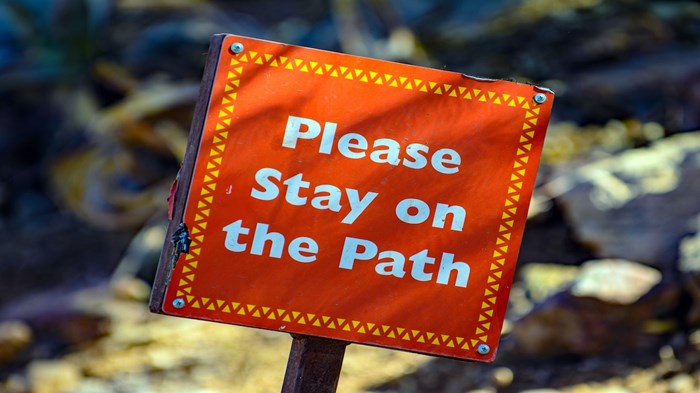Jesus Breaks through some Limits

Last week I began a series on Mark 7:1-23 in which I claimed that as soon as Jesus proclaimed that “The Kingdom of God is near” (Mark 1:15) that he went on to break a bunch of rules, especially rules connected to the Jewish Purity Code [Halakhic rulings]. Remember that for the Jews, being ceremonially clean was everything. You can read Leviticus 11 for all the ways they could become unclean/defiled.
In Mark 7:1-23 the Pharisees did not appreciate Jesus not following their rules about who and what is unclean by not washing his hands before he ate.
During COVID-19, hand washing is a big deal. In order to help my young children wash for more than twenty seconds, we recite the Lord’s Prayer. The problem is my kids recite it so fast that it takes them about five seconds instead of twenty seconds. Think of something like this,
“ourfatherinheavenhallowedbeyourname
yourkingdomcomeyourwillbedone
onearthasitisinheaven
giveustodayourdailybread
andforgiveusourdebtsasweforgive…”
They make it a race. You might say, they completely miss the point of both hand-washing for purity sake and the sacred experience of memorizing the Lord’s Prayer.
And this is part of Jesus’ problem with the Pharisees and their hand-washing rituals. In their strict obedience to the ritual, they missed the heart behind the ritual.
Jesus has some words for them.
Jesus replied, “You hypocrites! Isaiah was right when he prophesied about you, for he wrote, ‘These people honor me with their lips, but their hearts are far from me. Their worship is a farce, for they teach man-made ideas as commands from God.’ For you ignore God’s law and substitute your own traditions.” (Mark 7:6-8)
Jesus calls them hypocrites or pretenders and the example he gives that validates his accusation is this: They “ignore God’s law and substitute their own tradition.”
Jesus goes to explain what he means in Mark 7:9-13. He says, you skillfully sidestep the laws don’t serve you while neglecting the laws that require you to care for your parents. Apparently, the Pharisees decided that they were not going to provide financially for their needy parents because they had “devoted those funds to God.”
The reason for Jesus’ harsh judgement of the Pharisees is because they are conveniently setting aside some parts of the scriptures that do not serve them and in doing so failing to care for the needy and vulnerable among them.
In my youth group we are studying hermeneutics right now (in a fun “youthy” sort of way). One thing that I have told the students is that, as we approach the bible, we all “pick and choose.” We pick and choose what scriptures we will follow literally and which scriptures we deem as appropriate or applicable for that ancient audience and time. This is not something to be afraid of, I tell them, it is just a fact. Do we greet one another with a holy kiss as Paul instructs in 2 Corinthians 13:12? No. Do women cover their heads while they pray as commanded to in 1 Corinthians 11:13? No. We all pick and choose.
This is what the Pharisees are doing here. And this is what Jesus is doing. Jesus calls them hypocrites, not because they pick and choose but because they do so at the detriment of the ones in need.
As a Church, have we done this? Are there interpretations of rules that we have insisted on following that have allowed us to sidestep the commands requiring us to care for people in need? One way to discern if we are guilty of this is to ask, who are the most vulnerable among us? Who is in need? Who has the least amount of power here? And then, how does our church practice include, welcome and care for these people? If the rules (or the interpretation of the rules) become the means by which we don’t care for people in need, then it may be time to adjust the rules. Let’s allow LOVE and Human Flourishing to be the lens through which we read and interpret the scriptures.
Jesus Creed is a part of CT's
Blog Forum. Support the work of CT.
Subscribe and get one year free.
The views of the blogger do not necessarily reflect those of Christianity Today.




















